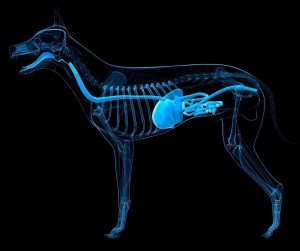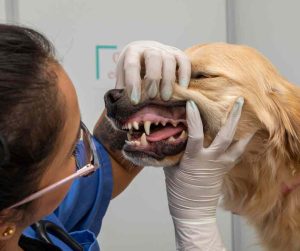As pet owners, it is important to be aware of the potential digestive issues that our furry friends may face. From dietary sensitivities to more serious conditions, understanding the causes, symptoms, and treatment options for these problems can help us provide the best care for our beloved dogs. In this article, we will discuss the top 10 digestive problems that dogs may experience, along with helpful information on how to identify and manage these issues. So, let’s dive in and learn more about how to keep our canine companions happy and healthy.

Understanding the Top 10 Digestive Problems in Dogs: Causes, Symptoms, and Treatment Options
Table of Contents
1. Diarrhea
Diarrhea is one of the most common digestive problems in dogs. It is characterized by loose, watery stools and can be caused by a variety of factors such as dietary changes, food allergies, infections, and parasites. Symptoms of diarrhea in dogs include frequent bowel movements, straining, and dehydration. Treatment options include a bland diet, probiotics, and medication prescribed by a veterinarian.
2. Vomiting
Vomiting is another common digestive problem in dogs and can be caused by a variety of factors such as dietary indiscretion, infections, and underlying health conditions. Symptoms of vomiting in dogs include retching, drooling, and loss of appetite. Treatment options include withholding food for 12-24 hours, offering small amounts of water, and medication prescribed by a veterinarian.
3. Constipation
Constipation is a digestive problem that occurs when a dog has difficulty passing stool. It can be caused by a lack of fiber in the diet, dehydration, and underlying health conditions. Symptoms of constipation in dogs include straining, small or hard stools, and decreased appetite. Treatment options include increasing fiber in the diet, adding canned pumpkin to meals, and medication prescribed by a veterinarian.
4. Gastritis
Gastritis is an inflammation of the stomach lining and can be caused by a variety of factors such as dietary indiscretion, infections, and stress. Symptoms of gastritis in dogs include vomiting, diarrhea, and loss of appetite. Treatment options include a bland diet, probiotics, and medication prescribed by a veterinarian.
5. Pancreatitis
Pancreatitis is a condition in which the pancreas becomes inflamed and can be caused by a high-fat diet, obesity, and underlying health conditions. Symptoms of pancreatitis in dogs include vomiting, diarrhea, and abdominal pain. Treatment options include a low-fat diet, medication prescribed by a veterinarian, and in severe cases, hospitalization.
6. Inflammatory Bowel Disease (IBD)
Inflammatory Bowel Disease is a chronic condition in which the lining of the digestive tract becomes inflamed. It can be caused by food allergies, infections, and immune system disorders. Symptoms of IBD in dogs include vomiting, diarrhea, and weight loss. Treatment options include a hypoallergenic diet, medication prescribed by a veterinarian, and in severe cases, surgery.
7. Colitis
Colitis is an inflammation of the colon and can be caused by a variety of factors such as dietary changes, infections, and stress. Symptoms of colitis in dogs include diarrhea, straining, and mucus in the stool. Treatment options include a bland diet, probiotics, and medication prescribed by a veterinarian.
8. Intestinal Parasites
Intestinal parasites such as roundworms, hookworms, and giardia can cause digestive problems in dogs. These parasites can be contracted through contaminated food, water, or soil. Symptoms of intestinal parasites in dogs include diarrhea, vomiting, and weight loss. Treatment options include deworming medication prescribed by a veterinarian.
9. Gastrointestinal Obstruction
Gastrointestinal obstruction occurs when a foreign object or material becomes lodged in the digestive tract, preventing the passage of food and water. This can be a life-threatening condition and requires immediate veterinary attention. Symptoms of gastrointestinal obstruction in dogs include vomiting, diarrhea, and abdominal pain. Treatment options include surgery to remove the obstruction.
10. Megaesophagus
Megaesophagus is a condition in which the esophagus becomes enlarged and loses its ability to move food into the stomach. It can be congenital or acquired and can be caused by underlying health conditions. Symptoms of megaesophagus in dogs include regurgitation, weight loss, and difficulty swallowing. Treatment options include feeding the dog in an upright position, medication prescribed by a veterinarian, and in severe cases, surgery.
Prevention
Balanced Diet
To prevent and treat diarrhea in dogs, it is important to maintain a consistent and balanced diet. Sudden changes in diet can upset a dog’s digestive system and lead to diarrhea. It is also important to avoid giving your dog table scraps or foods that are known to cause digestive issues, such as fatty or spicy foods. If your dog does experience diarrhea, it is important to keep them hydrated and to gradually reintroduce their regular diet once the diarrhea has resolved. One of the key components of a healthy diet for dogs is high-quality protein.
Dogs are omnivores, meaning they require a combination of animal and plant-based proteins in their diet. Animal proteins, such as chicken, beef, and fish, are essential for building and repairing tissues in the body. Plant-based proteins, such as legumes and grains, provide important vitamins and minerals that support overall health.
A diet lacking in protein can lead to digestive problems such as malnutrition and weight loss. In addition to protein, a dog’s diet should also include a balance of carbohydrates, fats, and fiber. Carbohydrates provide energy for daily activities, while fats are necessary for maintaining healthy skin and coat. Fiber, found in fruits and vegetables, helps regulate digestion and prevent constipation. A lack of these essential nutrients can cause digestive issues such as diarrhea, bloating, and gas.
Maintain Healthy Weight
Maintain a healthy weight and avoid feeding them high-fat foods. It is also important to monitor your dog’s medications and consult with a veterinarian before giving them any new medications. In addition to providing a balanced and nutritious diet, there are other steps pet owners can take to prevent and manage digestive problems in dogs. These include feeding smaller, more frequent meals, avoiding table scraps and human food, and ensuring access to clean and fresh water at all times. It is also important to monitor a dog’s weight and adjust their diet accordingly to prevent obesity, which can lead to digestive issues.
Probiotics
Another important aspect of a dog’s diet is the inclusion of probiotics. Probiotics are live microorganisms that promote the growth of beneficial bacteria in the gut. These good bacteria help maintain a healthy balance in the digestive system and aid in the breakdown of food. Certain foods like yogurt and kefir contain probiotics, or you can add them to a dog’s diet as a supplement. Including probiotics in a dog’s diet can help prevent digestive problems such as irritable bowel syndrome and inflammatory bowel disease.
Allergies
It is also crucial for pet owners to be aware of their dog’s food allergies and sensitivities. Just like humans, dogs can develop allergies to certain foods, which can cause digestive problems. Common food allergens for dogs include beef, dairy, wheat, and soy. If a dog is experiencing digestive issues, it is important to consult with a veterinarian to determine if a food allergy is the underlying cause. In these cases, the veterinarian may recommend a specialized diet to manage the allergy and prevent further digestive problems.
Natural Remedies vs. Medical Interventions: Finding the Best Treatment for Your Dog’s Digestive Problems
Natural remedies, also known as alternative or holistic treatments, have gained popularity in recent years as more pet owners seek natural and non-invasive solutions for their furry companions. These remedies often involve the use of herbs, supplements, and dietary changes to address digestive issues. One of the main advantages of natural remedies is that they are generally considered safe and have minimal side effects. They also tend to be more affordable than medical interventions, making them a popular choice for pet owners on a budget.

Some of the most commonly used natural remedies for digestive problems in dogs include probiotics, digestive enzymes, and herbal supplements such as slippery elm and ginger. Probiotics are live bacteria that can help restore the balance of good bacteria in the gut, which is essential for proper digestion. Digestive enzymes, on the other hand, can aid in the breakdown of food and improve nutrient absorption. Herbal supplements like slippery elm and ginger have anti-inflammatory properties and can soothe the digestive tract, making them useful for dogs with conditions like gastritis or colitis.
While natural remedies can be effective in managing digestive problems in dogs, they may not always be the best option. In some cases, the underlying cause of the issue may require medical intervention. For example, if your dog has a bacterial infection or a blockage in the digestive tract, natural remedies may not be enough to resolve the problem. In these situations, a visit to the veterinarian and the use of prescription medication may be necessary.
Medical interventions for digestive problems in dogs can include medications, surgery, and other procedures. A veterinarian typically recommends these treatments after conducting a thorough examination and diagnosis. One of the main advantages of medical interventions is that they can provide quick and effective relief for your dog’s digestive issues. For example, if your dog is suffering from severe diarrhea, your veterinarian may prescribe medication to stop the symptoms and address the underlying cause.
However, medical interventions also come with potential risks and side effects. Some medications can cause adverse reactions in dogs, and surgery always carries a certain level of risk. Additionally, these treatments can be costly, and not all pet owners may be able to afford them.
So, which approach is best for your dog’s digestive problems? The answer may vary depending on your dog’s specific condition and needs. In some cases, a combination of natural remedies and medical interventions may be the most effective solution. For example, if your dog has a bacterial infection, your veterinarian may prescribe antibiotics while also recommending probiotics to restore the balance of good bacteria in the gut.
It is essential to consult with your veterinarian before starting any treatment for your dog’s digestive problems. They can help you determine the underlying cause of the issue and recommend the most appropriate course of action. They can also monitor your dog’s progress and make adjustments to the treatment plan if needed.
In conclusion, both natural remedies and medical interventions can be useful in managing digestive problems in dogs. Natural remedies can be a safe and affordable option for mild cases, while medical interventions may be necessary for more severe conditions. Ultimately, the best treatment for your dog will depend on their individual needs and the advice of your veterinarian. With proper care and treatment, your dog can overcome their digestive issues and live a happy and healthy life.


